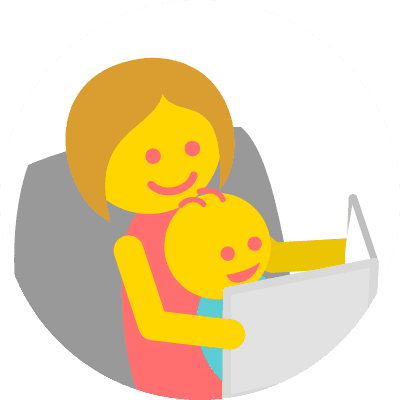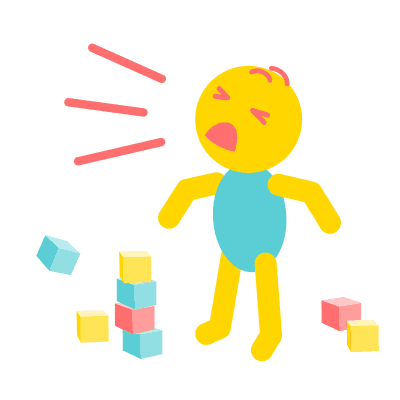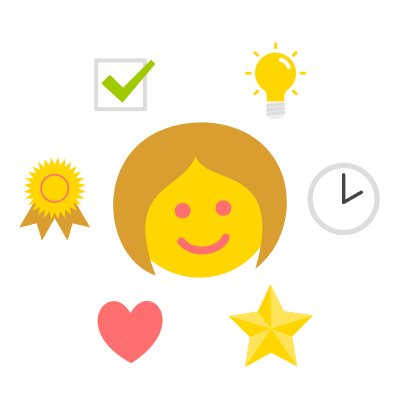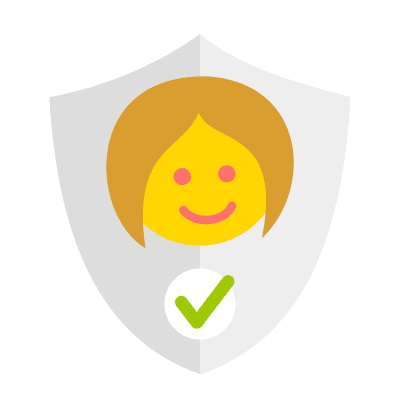How To Deal With Separation Anxiety (15 Tips For Babysitters)


Written & Illustrated by
Matthew James Taylor
Kidsit Founder, General Manager

Babysitting video by
Lydia Kutz
Babysitter, Infant Swimming Resources Instructor

Medically Reviewed by
Gina Maria Jansheski, MD, FAAP
Board-Certified Pediatrician, Medical Reviewer
Key Takeaways
- Separation anxiety is a normal reaction in young children when parents leave - it often peaks up to about age 6.
- Let children say goodbye clearly but briefly - dragging out farewells or sneaking away tends to worsen the anxiety.
- Use distraction before panic sets in - toys, games, or engaging activities help shift their focus away from the separation.
- Avoid repeatedly mentioning “Mommy” or “Daddy’s coming back” unless asked - excessive reminders can reignite anxious feelings.
- Be calm, empathetic, and emotionally steady - children pick up on your tone and mood.
- Familiarize yourself with the child beforehand (pre-visits, trial sessions) to reduce the shock of being left alone.
- Know when to call parents - if a child remains inconsolable despite your best efforts, having that line of communication is important.
When parents leave, it can be quite a traumatic experience for the children you're babysitting, especially if they haven't been left with a sitter before. Knowing how to deal with separation anxiety effectively will help you avoid a lot of stress and tears.
How do babysitters deal with separation anxiety? Let kids say goodbye to their parents before they leave, but don't draw it out too long. Try to distract the kids with their favorite toy as their parents are leaving to keep them from getting more upset. Empathize with them, stay calm, and help them work through it by distracting them without talking about mom or dad.
In this article, you'll learn what separation anxiety is, what it looks like, and how to help minimize the effects of it while you're babysitting.
Lydia has been working in the childcare industry for 15 years, and owned a childcare agency in Florida, USA for 7 years. She has been working as a babysitter from a young age and has looked after plenty of kids with separation anxiety. In this video she reveals her secrets for dealing with separation anxiety.
What is Separation Anxiety?
Separation anxiety is a reaction that kids may have when they become separated from their parents, caregivers, siblings, or anybody else in their life with whom they have a strong emotional attachment. The time or the reason doesn’t really make a difference for them; it’s just the fact that someone is making an exit. And if you spend a lot of time with a particular child, they might even experience some separation anxiety when it's time for you to leave!
Actually, it’s totally natural for young kids to feel anxious when saying goodbye to their parents up until around age 6 (source) (source). So depending on the ages of the children you're babysitting, don't be surprised if there are tantrums, crying, or general clinginess when their parents go to leave.
Separation anxiety is an entirely normal part of child development. It certainly wouldn't have been very good for the survival of babies in the past if they were completely indifferent to their parents leaving them!
Separation anxiety has various manifestations in children at different ages and in different ways. The level of intensity of their separation anxiety will also vary significantly from kid to kid.
How Babysitters Can Deal with Separation Anxiety
Watching a child crying and throwing a tantrum because of separation anxiety can be a heart-wrenching experience for parents and babysitters alike. But there are steps you can take to minimize the impact of parents walking out the door.
You may not be able to stop the tears entirely. But hopefully, you'll be able to use these tips to at least lessen the duration and intensity of the child’s reaction.
See our article: How to Calm an Upset Child (17 Tantrum Tips for Babysitters) for help with this.
1. Let Them Say Their Goodbyes
Always give kids a chance to interact with their parents when they're heading out. Let their parents give them a hug and a quick goodbye, and then stand at the door with the child to wave bye-bye and blow kisses to them as they go.
Sometimes parents will try to sneak out without their kids noticing, in an attempt to lessen the impact. But letting parents sneak out will often make things way worse. Kids can be calmer in the short term while they don't know, but as soon as they realize their parents are nowhere to be found, they're prone to freak out.
You don't want to set kids up with the idea that their parents can just disappear suddenly and without warning at any moment. It can lead to more anxiety in the future whenever their parents leave their sight.
2. Don’t Let Goodbyes Last Too Long!
Giving parents and kids a chance to say their goodbyes is important. But once that happens and they start to leave, they shouldn't drag it out or come back for more.
Parents will often feel bad when they leave and their child starts crying. So they'll run back for another hug or kiss before they go. This only draws out the separation process longer and creates more stress for kids. Letting parents come back when their kid cries will encourage them to cry in order to get their parents to return or stay a little bit longer every time!
So, as hard as it is, talk about it beforehand with the parents and ask them not to come back once they walk away or close the door. Reassure them that you will handle the situation so their children won't be crying very long because, within minutes, they will be involved in an activity and be too busy having fun.
3. Allocate Extra Time Before Parents Leave
Part of what can make saying goodbye stressful for kids is if it feels rushed. If parents are frantic to get out the door because they have a taxi waiting or they have a dinner reservation at a specific time to make, they might seem frazzled and not give their full attention to saying goodbye to their child. This can make the children feel anxious.
Ask if you can get a bit more time designated for that transition before parents leave. That way, there will be about ten minutes for their child to adjust to your arrival and settle into some activity beforehand, instead of parents rushing out the door as soon as you get there.
Make sure to leave a couple of minutes for you to say goodbye to the child at the end of your babysitting job, too, if they're still awake.
4. Don't Take Separation Anxiety Too Personally
If a child is crying because of separation anxiety, all it means is that they miss their parents. It doesn't mean that you're doing a lousy job as a babysitter.
It seems obvious, but in the moment this can be tough to remember, particularly if the child you're babysitting lashes out at you as a way of expressing their unhappiness.
Just try to work through it, knowing most kids will get over it within 15 minutes. Avoid getting too defensive or taking what kids say in the middle of a tantrum to heart.
Do you babysit a particularly difficult child? Read my article How to Babysit a Difficult Child (4 Steps to Success) to make your life a little easier!
5. Stay Positive and Calm
The child you're babysitting might be too young to understand words yet. But they still have a great instinct when it comes to reading the emotions of people around them. Any negativity or apprehension will be quite apparent to them.
Work with parents to make sure that you're both being as cheerful and calm as possible when it's time for the goodbyes. They might be a bit anxious about leaving their child alone with a babysitter for a few hours too, but they need to do their best not to let that show. Any apprehension will rub off on their kid and make the separation process harder.
Keeping a brave face on might be easier said than done, and some parents may not be able to leave their kid alone for the first time without breaking down in tears themselves. But if they're able to avoid falling apart until after they close the door, it will make the process a lot easier on their kid, and much easier on you.
6. Keep the Kids Distracted
When the child's parents are getting ready to leave, you should have a toy or some other kind of activity in mind and ready to distract them.
For babies, this might be their favorite pacifier or blanket. Or for older kids, you can give them their favorite toy to play with. You might also want to try experimenting with food as a distraction, like giving their favorite healthy snacks to kids as their parents leave. Anything that helps divert their focus and attention onto something else will do the trick by getting their minds off the fact their parents are leaving.
Kids might even still cry if you give them some kind of distraction. But chances are they'll be upset for a much shorter period of time.
The only thing to be mindful of is that you might create a dependency where the child always needs that particular toy whenever they're separated. So it might be better to try distracting them by playing a game of peek-a-boo, singing them a song, or some other activity that they enjoy instead.
Distractions are best if used preventatively before a meltdown starts. It's harder to distract kids and pull them away in the middle of a tantrum than stopping it before it starts.
Not sure how to keep kids that you're babysitting busy? Check out my article - Fun things to do when Babysitting (205 Kids Games, Activities & Entertainment Ideas)
7. Avoid Talking About Mommy or Daddy When They're Gone
Once the initial anxiety of the departure has subsided, avoid talking about mommy or daddy with the child unless they bring it up.
Needlessly reminding them that their parents are gone might rekindle some of their previous emotions. Even if you have good intentions, like letting them know that mommy and daddy will be home soon, it's usually best not to say anything at all.
Of course, if the kid you're babysitting brings it up by asking where their parents are, you should answer them briefly and then get into another activity. But if they're just playing and blissfully ignorant to the fact their parents are gone, don't bring it up and potentially stir up any anxious feelings.
8. Make Sure There's No Other Reason the Child Could Be Crying
You might think that a child is throwing a tantrum because of separation anxiety. But just because their mood started around the same time that their parents left doesn't necessarily mean separation was the cause.
The child may have hurt themselves without you noticing. Maybe the family dog came up and took the toy out of their hands while you weren't looking. Or they might be trying to get out of something they don't want to do, like take their bath or go to bed.
If you're watching a baby, check to make sure they don’t need changing and aren't just hungry or tired. Often they just want something to eat or to be rocked to sleep.
Separation anxiety is likely the reason a child is crying if they start as soon as their parents leave. But don't rule out that there might be other issues playing out too. So if it's been a while and the child is still crying, start looking for other potential causes for them being upset.
9. Take a Moment to Gather Your Thoughts
If a child has been wailing for more than a few minutes after their parents have left, you might be starting to get frustrated when it seems like nothing will calm them down.
You shouldn't leave the child alone, but don't be afraid to take a step back and take some deep breaths for a few moments to calm down. Just pulling yourself away from the situation for a minute or so to gather your thoughts can be a big help. It's fine to let the child cry it out for a short period of time while you take a few breaths but remain in the room with them.
10. Don't Be Afraid to Call the Parents
If you're feeling completely overwhelmed and nothing you do seems to calm the child down, as a last resort you might just have to call their parents. Especially if you've babysat for this child before without any issues, and something seems like it might be wrong. It's better to be safe and check with them to see what they want you to do. Or, if it continues, they might even want to come home and make sure themselves that everything is okay.
11. Empathize With the Child
Show the kids you're babysitting that you understand how they're feeling when their parents leave. That will demonstrate that you're on their side, and it usually can prevent them from letting their frustration out on you.
Talk to them and let them know that it's okay to miss their mom and dad, and reassure them that their parents love them a lot too. Tell them about all the fun you're going to have together, and that their parents will be coming back soon.
Establish more of a bond by sitting on the floor with kids while you talk to them. That way, you'll be on their level, and they can see you more as a friend as opposed to just someone who is in charge.
Giving kids an outline of the day can help them too. Let them know what kind of fun stuff you have in store, like doing crafts, eating snacks, reading books, or going to the playground.
12. Get Familiar with the Child Ahead of Time
If parents are on board, it can really help to start getting acquainted with their child before you'll be left alone to babysit them.
You might come over ahead of time, before your first babysitting shift, just to familiarize yourself with the kids and their home. Of course, parents would need to pay you for your time. But many are willing to have a trial babysitting shift while they're still in the house, just to make sure everything will go smoothly.
They might even want to have you over for dinner one time, just so the child is used to seeing your face and feels comfortable with you being in their home.
If you aren't able to arrange a separate time to meet kids beforehand, at least see if you can schedule to arrive an extra 30 minutes early on the first sit. That way, you can spend some time getting to know the child while their parents are still there and begin forming a bond. It will make it easier to transition when it's time for their parents to go out.
13. Keep Childcare Consistent
Kids like consistency, so if they're able to have the same babysitter regularly, it will make separation a little easier on them than constantly having new caregivers.
Be very tactful when you bring that up with the parents, though!
But if their child is comfortable with you, it makes sense, and they will likely want to keep using you for all of their babysitting needs, which means more hours and consistent work for you.
14. Give Kids Jobs to Keep Them Busy
Preschoolers and toddlers do really well when they've got a job to do. It can help to give them a sense of control. So when you're babysitting kids in that age range, try to put them in charge of choosing and helping to prepare their own snacks, taking craft materials out of storage and carrying them to the table, or other little jobs to keep their minds busy.
Even something as basic as having them close the door and lock it when their parents leave can make a huge difference in helping to combat separation anxiety and help them feel more independent.
15. Know The Difference Between Regular Separation Anxiety versus Separation Anxiety Disorder
While it's normal for most young kids at certain ages to feel separation anxiety, there's a more severe condition that can develop called separation anxiety disorder.
It's a lot less common than the usual separation anxiety and only happens in about 4% of kids. But that's still common enough that it's something you should be aware of and keep in mind.
Separation anxiety disorder is marked by a stronger fear of abandonment and a real sense that something bad is going to happen. This fear could be something like thinking they'll get lost or kidnapped, or their parents will get in an accident or die.
Symptoms are more severe than the usual crying and tantrums associated with typical separation anxiety. They can include things like nausea and vomiting, shortness of breath, and full-blown panic attacks. Kids with separation anxiety disorder may also have a fear of sleeping alone and experience frequent nightmares, although this isn't exclusive to just kids with separation anxiety.
If you suspect that a child you're babysitting has separation anxiety disorder, it's really something you'll need to talk to their parents about, because it is a problem that will be difficult for you to solve on your own. They are likely to be already aware that their child has exhibited signs in the past.
Babysitter Child Age Preferences
The age of children you choose to babysit for can make your job more or less difficult.
| Child age | Percent |
|---|---|
| 45.74% | |
| 67.06% | |
| 83.70% | |
| 89.47% | |
| 84.78% | |
| 60.25% | |
| 36.31% |
(Babysitting statistics calculated weekly from our live member data — Updated 16 Feb 2026)
Conclusion
Separation anxiety is something you'll definitely come across as a babysitter, especially if you're watching toddlers or preschoolers. That's the age where it's most common.
Making some time to say goodbye will help kids adjust to their parents’ leaving. You can try to distract them with their favorite toy or activity to make it a bit easier for them, and give them a task to help them feel more independent.
If a child you're babysitting is struggling with separation anxiety after their parent leaves, stay calm and try to empathize with them. Tell them that what they're feeling is okay, but let them know their parents will be back soon, and you're going to have lots of fun in the meantime.
Next:
How to Calm an Upset Child (17 Strategies for Babysitters)



























